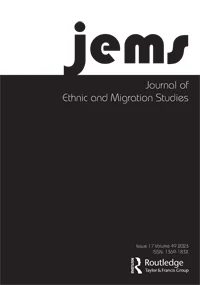Navigating bureaucratic violence in Canada’s two-step immigration system
ABSTRACT
In recent years, Canada has moved towards a system of ‘two-step’ immigration, wherein a growing proportion of new permanent residents are selected from people who are already in the country on a temporary work permit. While the ‘two-step’ selection approach has been lauded as improving immigrants’ labour market outcomes, the process to achieve permanent residence can be complex and the stringent selection criteria prevent many migrants from attaining permanent status. In this paper, we examine the administrative burden that migrants with precarious status encounter in their interactions with state immigration bureaucracies as they try to attain permanent residence through economic programmes. The research is based on a qualitative analysis of interviews with 20 migrants with precarious status in the provinces of Ontario, Alberta and Quebec. Participants describe the stressful life consequences resulting from confusing and opaque administrative processes, unpredictable wait times, costly application fees, bureaucratic errors and a lack of accountability. We theorise how such experiences of administrative burden can compound into forms of bureaucratic violence that prolong migrant precarity, exacerbating the legal violence inherent in state immigration categories which deny full social rights to migrants without permanent residence.
Membres et équipe SHERPA

Jill Hanley
Co-directrice scientifique, Institut universitaire SHERPA; Professeure titulaire, École de travail social, Université McGill

